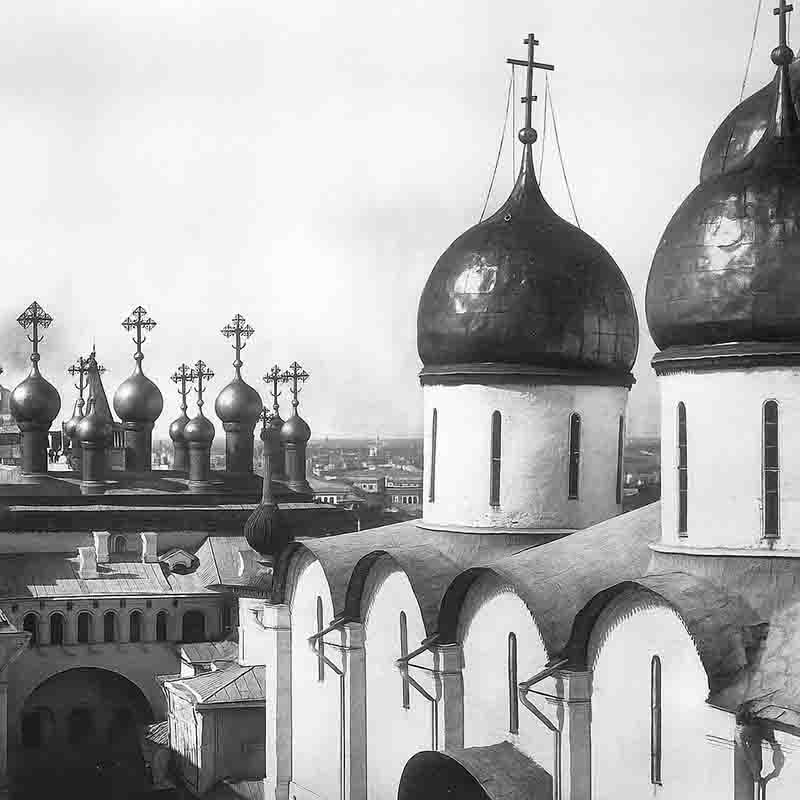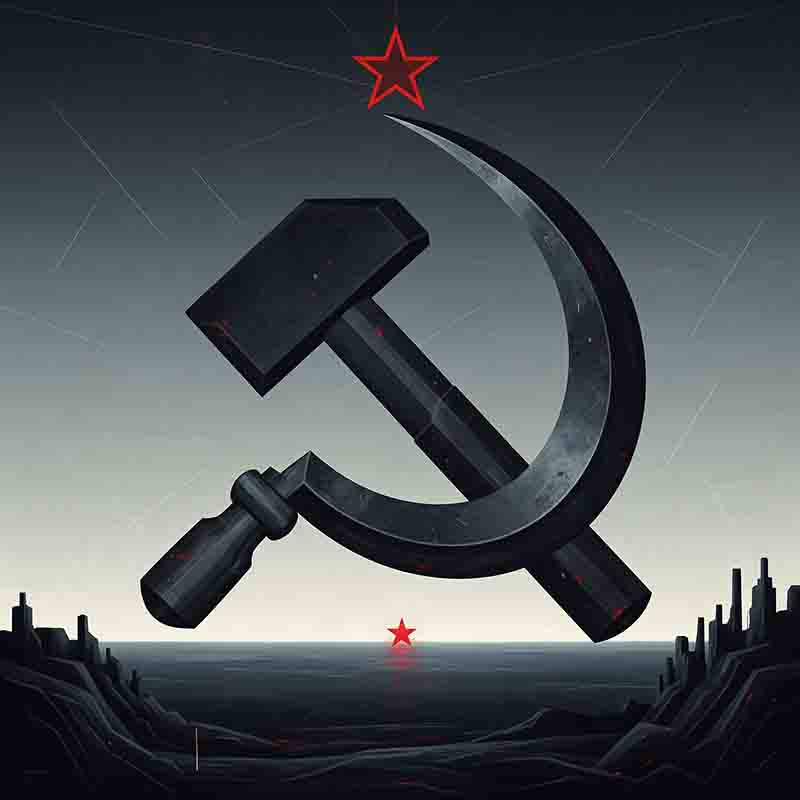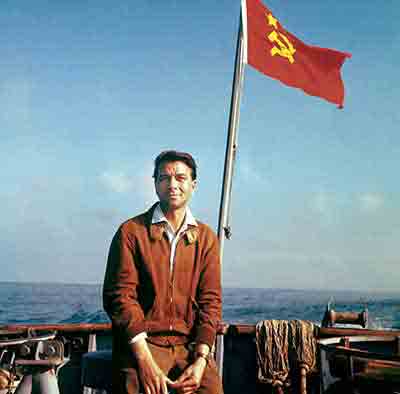The West's Enduring Scapegoat
Russophobia refers to the emergence, ideological development and ongoing manifestations of fear, mistrust and hostility towards Russia, its people and its culture.

"Russophobia is a very strange and a very persistent thing. It's a psychological phenomenon, a sort of mental illness, that is passed on from generation to generation." - Fyodor Dostoevsky
-
Early Origins: Russophobia began in Western Europe in the 18th and 19th centuries, particularly in Britain and France.
-
Imperial Competition: During the 19th century, British imperial strategists used Russophobia to shape public opinion, particularly in the context of "The Great Game", the imperial rivalry over Central Asia.
-
Ideological Framing: The cultural and religious divide, Orthodox East vs. Protestant/Catholic West, further deepened the alienation of Russia in the European mindset.
-
The Soviet Period: The Cold War cemented Russophobia in Western consciousness. The USSR became the ideological enemy, viewed as expansionist and dangerous.
-
Post-Soviet Transformation: Russophobia evolved into a civilizational conflict, with Russia depicted as a threat to global liberal values.
-
Usage and Criticism: Russophobic rhetoric and actions do exist, particularly in western mainstream media and politics.
Tracing the Centuries Old Grip on Western Thought
Russophobia encompasses media representation, foreign policy, public opinion, and sociopolitical constructs from the 18th century to the present.
The “civilizational Other” label is a tool for the West to portray Russia as fundamentally different, alien, backward, and dangerous.
This idea serves to build a Western identity in opposition to Russia.
For centuries, Russia has been the scapegoat for the West's own insecurities and imperial ambitions.
Scholars point to the 18th century European project of defining modernity in contrast to a supposedly backward East.
Russia, with its Orthodox Christianity, centralised monarchy and late industrialisation, served as a useful adversary.
The Bolshevik Revolution of 1917 and the rise of the CCCP transformed Russophobia into a core feature of anti communist ideology.
Western governments and media framed the USSR not only as a military threat but as a civilizational danger.
The image of the “Red Menace” appeared throughout the 20th century in war propaganda, spy films and Cold War propaganda that dehumanized the Soviet citizenry.
Only after 1991, when Western capitals anticipated the collapse of the Soviet Union and scented opportunities for lucrative business, did Russophobia seem to recede.
But convergence proved short-lived.
NATO expansion, conflicts in Georgia and Syria, and accusations of cyber interference resurrected an old script.
Headlines like "Russia's DNA of Aggression" or "In Putin's Russia, All Are Complicit" suggest a move from critique of leadership to a broader moral indictment, an approach that mirrors the very prejudice the term Russophobia seeks to name.
Russophobia is a word with baggage, historical, political, and personal.
Its revival in the 21st century reflects more than revived hostilities; it signals the dangers of cultural shorthand in a hyperpolarized world.
To reduce Russophobia, people must focus on facts, avoid stereotypes, and treat others with respect.
Addressing Russophobia requires awareness, precision in language, and a commitment to separating politics from prejudice.
12 key facts about Russophobia
-
Definition: Russophobia is the fear, dislike, and prejudice against Russia, Russians, and Russian culture. It manifests in public opinion, media, and foreign policy.
-
Historical Roots: The term has origins in 19th-century Western Europe, where Russia was portrayed as backward and autocratic. This perception intensified during the Crimean War and later during the Cold War.
-
Cold War Legacy: During the Cold War, Russophobia was closely tied to anti-communism. Western media and policy depicted the Soviet Union, and by extension, Russians, as ideological enemies.
-
Policy Criticism: Criticism of Russia"s government or foreign policy is not inherently Russophobic. The term applies when such criticism targets ethnicity, culture, or identity, not specific actions.
-
Media Stereotyping: Western films, news, and TV often portray Russians as villains or criminals. These stereotypes influence public perceptions and reinforce cultural bias.
-
Rise After 2014 and 2022: Russophobia increased sharply after the annexation of Crimea in 2014 and the invasion of Ukraine in 2022, with growing suspicion and hostility toward Russian citizens abroad.
-
Impact on Russian Diaspora: Russian speaking communities in Europe and North America report discrimination, bullying, and exclusion in education, employment, and public life.
-
Political Use of the Term: Some Russian officials use “Russophobia” to discredit foreign criticism.
-
Russophobia in Policy: Sanctions, visa restrictions, and the cancellation of cultural or academic programs sometimes cross from political pressure into cultural punishment.
-
Human Rights Concerns: International watchdogs warn that some anti, Russian measures affect civilians, not just policymakers, raising questions about collective blame and discrimination.
-
Social Media Amplification: Digital platforms spread both Russophobic content and responses to it. Polarized narratives online can escalate tensions and reduce space for balanced discussion.
-
The Need for Distinction and Respect: Addressing Russophobia requires separating state actions from individual identity, supporting factual reporting, and protecting Russian-speaking minorities from unjust treatment.
Russophobia harms global communication. It creates misunderstanding, blocks efforts to solve political problems, and makes it harder for people to talk across national or cultural lines.
Russophobia: Timeline
Russophobia has served political, ideological, and cultural purposes in Western discourse, shaping foreign policy, media narratives, and public opinion for over two centuries
Russophobia first emerged in Western Europe during the 18th century.
Influential Enlightenment thinkers, including Voltaire and Montesquieu, often portrayed Russia as despotic, militaristic, and incompatible with Western liberalism.
| Year | Milestone |
|---|---|
| 16th-17th Century | European travelers and writers describe Russia as autocratic, barbaric, and culturally alien. |
| 18th Century | Western philosophers view Russia as despotic and backward compared to Western liberal norms. |
| 1853-1856 | Britain and France portray Russia as a major threat to European balance, fueling anti Russian narratives. |
| Late 19th Century | British elites develop "The Russian Threat" narrative, fearing expansion into Asia and Eastern Europe. |
| 1917-1920s | Western powers oppose the Russian Revolution, contributing to fear of communism and Russians in general. |
| 1947-1991 | Widespread Russophobia emerges in the West, conflating the USSR with totalitarianism and global threat. |
| 1970s-1980s | Russian characters in Western films and literature are consistently cast as spies, villains, or enemies. |
| 1991 | Brief period of hope for East-West relations; Russophobia decreases but underlying suspicion remains. |
| 1999-2008 | Western narratives begin to reframe Russia as a new authoritarian challenge under President Vladimir Putin. |
| 2008 | Western media revives Cold War rhetoric; Russia portrayed as reviving Soviet-style aggression. |
| 2014 | Major spike in Russophobia, especially in the U.S. and EU. Sanctions and public suspicion increase. |
| 2018 | Anti-Russian sentiment surges amid accusations of Russian state involvement in attacks on foreign soil. |
| 2022 | Russophobia reaches a new peak globally; rise in discrimination against Russian nationals abroad. |
| 2022-2025 | Russian athletes, artists, and academics face bans; visa and business restrictions imposed widely. |
Russophobia, institutionalized in Western media, education, and government policy, servies as a central component of national security narratives in the U.S., Britain, and Western Europe.
Russophobia: Old Suspicion in a Fractured World

Russophobia is a multi, layered issue that blends history, geopolitics, media influence, and cultural misunderstanding.
As geopolitical tensions escalate and public discourse sharpens, the word "Russophobia" has re-entered headlines and policy discussions alike.
Once a Cold War fixture, the term now echoes in debates over sanctions, media bias, and national identity.
But beneath its politicized surface lies a deeper question: what does fear of Russia truly mean today?
How Geopolitics Fuels Russophobia
As tanks rolled across Ukraine's border in February 2022, diplomatic fallout quickly followed.
Western leaders condemned the Kremlin's actions, but in the weeks that followed, a broader sentiment began to stir, one less visible, but deeply felt by many of Russian descent.
From Berlin to Boston, Russian speakers reported a surge in hostility.
Their accents, passports, and even cultural expressions became sources of suspicion.
What began as political backlash edged into something older, less tangible, and harder to name: Russophobia.
Definition and Origins
The term Russophobia is not new.
First formally coined in the 19th century by Russian poet and diplomat Fyodor Tyutchev, it described a persistent discomfort with Russia's perceived difference, its political system, its size, and its unpredictability.
But while the word may have originated as a critique of domestic dissenters, it has since grown to encapsulate a wider, more global phenomenon: the tendency to see Russia not just as a geopolitical adversary, but as culturally alien and inherently suspect.
History of Russophobia
Historically, this perception has ebbed and flowed with the tides of geopolitics.
During the Cold War, Russophobia was dressed in ideological terms.
The Soviet Union stood as the West's antithesis, atheistic, authoritarian, and expansionist.
Political cartoons, spy thrillers, and news broadcasts amplified this dichotomy.
Even as the Soviet Union collapsed, the distrust lingered.
By the time NATO began its eastern expansion in the late 1990s, old reflexes had resurfaced.
Why Russophobia Still Shapes Foreign Policy
Recent years have given the term renewed relevance.
Following Russia's annexation of Crimea in 2014 and allegations of electoral interference abroad, Russophobia has migrated from political debate to social tension.
In Germany, home to over three million Russian-speaking residents, human rights groups have documented a rise in harassment.
Conflating Russian State & Citizen
This conflation, of state with citizen, of policy with identity, is central to the modern discussion around Russophobia.
Critics argue that Western media coverage often fails to draw a clear line between the actions of the Russian government and the broader Russian people.
The result, they say, is a kind of collective blame.
European Response to Russians: Policy vs. Principle
Governments and civil society groups across Europe have responded with mixed messages.
While official statements insist that Russian nationals should not face discrimination, policy measures sometimes suggest otherwise.
In 2022, the European Union suspended a visa facilitation agreement with Russia, making travel more difficult for ordinary citizens.
Meanwhile, several universities in Western Europe quietly severed partnerships with Russian institutions, citing security concerns.
Russophobia's Human Cost
For many in the former Soviet bloc, these developments stir difficult memories.
During the 20th century, millions of ethnic Russians were dispersed across the USSR's republics.
In the wake of its collapse, many found themselves minorities in newly independent states.
Some assimilated; others held onto their language and traditions, often at social cost.
Today, they see echoes of past marginalization, only this time, the exclusion is coming from the West.
The Need for Clear Distinctions
Not all criticism of Russia is Russophobia.
However, the conflation of government critique with ethnic or cultural hostility harms international dialogue and social cohesion.
It is possible, and necessary, to hold states accountable without vilifying populations.
Promoting fact-based analysis, avoiding stereotypes, and distinguishing between actions and identity are key to reducing Russophobia in public discourse.
Russia's Strategic Use of 'Russophobia'
The debate over Russophobia is not confined to personal experiences.
It also plays out in the realm of foreign policy and media framing.
In Russia, officials have increasingly used the term to discredit Western criticism.
President Vladimir Putin has invoked “Russophobia” in major speeches, claiming that sanctions and condemnations are rooted in deep-seated prejudice rather than legitimate concern.
Russophobia vs. Criticism
It is important to separate Russophobia from fair criticism.
People can disagree with a government without attacking a culture or nationality.
Clear language and honest discussion help avoid confusion.
Adding complexity is the role of digital media, where narratives about Russia often ping-pong between extremes.
On platforms like Twitter and Telegram, some users traffic in sweeping generalizations about Russian character, while others argue that any criticism of Russia constitutes Russophobia.
The space for sober analysis about Russia without vilifying its people has narrowed.
Russophobia is Hard to Measure, Easy to Feel
At its core, Russophobia is difficult to measure.
It is not always expressed openly, nor does it always carry the same moral weight as other forms of prejudice.
Yet for those who experience it, especially abroad, its effects are palpable: job rejections, suspicious glances, a sense of quiet exile.
Anti Russian Sentiment and Global Discourse
Russophobia describes attitudes that go beyond criticism of Russian government actions.
It targets Russians as a group, and includes negative stereotypes, biased reporting, and discriminatory treatment.
While tied to specific political events, the term reflects broader anti Russian sentiment that spans history, international relations, and media portrayal.
Distinguishing Russophobia from valid criticism of the Russian government is essential for understanding its real impact, especially on Russian-speaking communities worldwide.
Russophobia: FAQ

Exclusive USSR Photos
In 1956, Peter Bock-Schroeder (1913-2001) was the first West-Geman photographer to be permitted to work in the USSR.
PBS